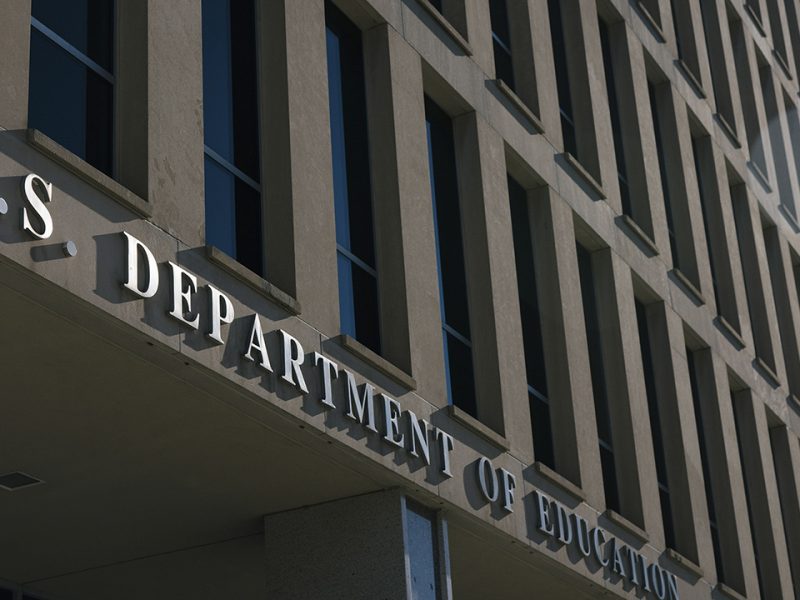A School Board Tried to Make Public Comments Civil. It Went Too Far, Court Says
Education Week | By Mark Walsh | October 9, 2024
A federal appeals court has struck down the public comments policies of a Florida school board, saying that its rules barring abusive, obscene, or personally directed comments blocked protected speech or were applied inconsistently.
The decision addresses issues being faced by school boards all over the country in recent years as parents and others have flooded board meetings with angry comments over a range of topics, including pandemic-related restrictions, gender policies, library books, or teaching about race. Many boards have similar policies addressing decorum and some seek to limit naming of school employees by board speakers.
“For many parents, school board meetings are the front lines of the most meaningful part of local government—the education of their children,” begins the Oct. 8 opinion of a three-judge panel of the U.S. Court of Appeals for the 11th Circuit, in Atlanta, adding that the right to speak at such meetings is not unlimited, “but neither is the government’s authority to restrict it.”
The 11th Circuit covers Alabama and Georgia in addition to Florida. The new decision would be set a precedent covering those states and could be influential elsewhere.
The case stems from a challenge by a local chapter of Moms for Liberty, the Florida-based grassroots conservative group, of the public comment policies for the 74,000-student Brevard County district in south Florida.
Moms for Liberty asserted that the enforcement of the policies by the then-board chair in 2021 was, as the 11th Circuit characterized it, “confusing at best, with the same kinds of speech silenced on some days but not on others, and some speakers interrupted for reasons that did not match up with what they were saying.”
The group sued under the First Amendment, saying the policies were vague and led to the chilling of its members’ speech.
A federal district court granted summary judgment to the school board, saying that its policies were constitutional. But the 11th Circuit panel reversed the district court, saying the policies violated the First Amendment. The ruling was unanimous except for one judge dissenting on one of the three policies under review.
As for Brevard County’s rule against “abusive” speech, the court pointed to testimony by the former board chair, Misty Haggard Belford, that it was designed to prevent “yelling, screaming, and profanity.”
But Belford had trouble defining “abusive,” saying the policy would prohibit calling people “names that are generally accepted to be unacceptable.”
“That definition is constitutionally problematic because it enabled Belford to shut down speakers whenever she saw their message as offensive,” the 11th Circuit court said. Belford silenced one speaker who had referred to “the evil LGBTQ agenda,” and another who referred to the “liberal left,” the court said.
“If the only ideas that can be communicated are views that everyone already finds acceptable, why have the school board meetings in the first place?” said the majority opinion by Judge Britt C. Grant, an appointee of President Donald Trump.
The second school board rule barred speakers from addressing their comments to board members other than the chair. The appeals court said that policy was applied haphazardly, with some speakers allowed to address board members when offering them thanks or other positive comments, but others shut down when they referenced a board member in critical terms.
Even a revised Brevard policy that prohibited all “personally directed” comments was inconsistently applied, the court said.
“Sometimes just mentioning someone’s name was enough to provoke interruption, but other times using a name was met with no resistance,” the court said, adding that it was difficult to discern what goals that policy served.
“To be sure, sometimes meetings can get tense—no one enjoys being called out negatively, and some may even dislike public praise,” Grant said. “But that is the price of admission under the First Amendment.”
Court says it is ‘remarkable’ to block reading from school library books at school board meetings
The board’s third policy, which prohibited using obscenity at board meetings, was challenged only as it applied to discussions of school library books.
A policy meant to prohibit true obscenity would pass muster, but the First Amendment protects some profane or sexually explicit speech, the court said.
“The board used its obscenity policy to bar protected speech, and it did so in a way that impeded the purpose of a school board meeting,” Grant said. She noted that the school board chair interrupted a speaker, who was reading from a school book she considered objectionable, as she was about to say a vulgar word for excrement.
“That word, though not polite, is also not obscene,” Grant said.
The content of school library books “would be difficult, if not impossible, for speakers to adequately air their concerns about a particular book without informing both the board and the community about what that book says,” she said. “And it is remarkable for the board to suggest that this speech can be prohibited in a school board meeting because it is inappropriate for children when it came directly from a book that is available to children in their elementary school library.”
Judge Charles R. Wilson, an appointee of President Bill Clinton, said he would have upheld the board’s revised policy on personally directed comments because it was reasonable and viewpoint neutral.






